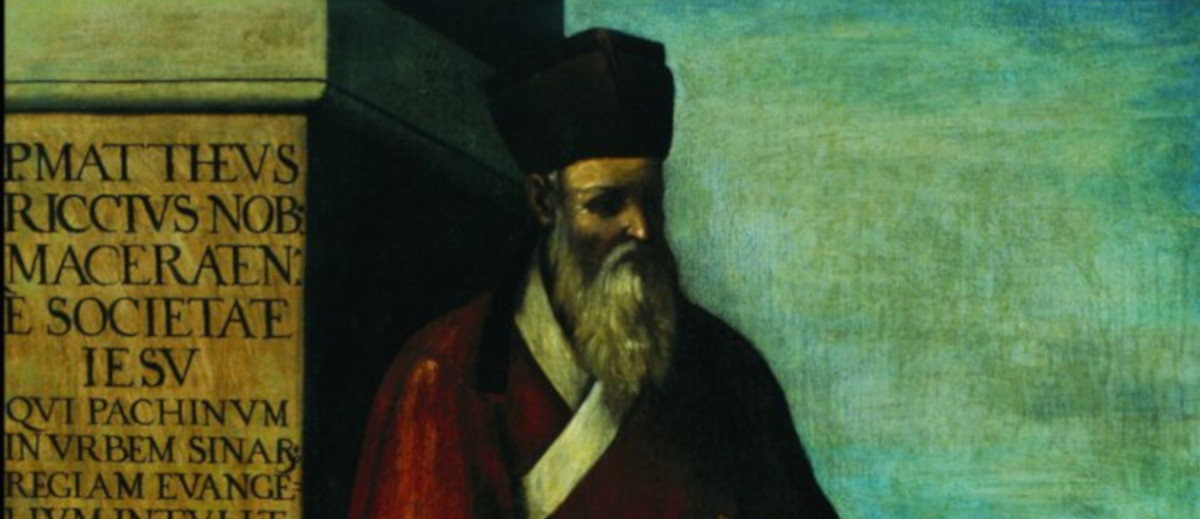 A new book published by The Beijing Center (TBC) provides insight into the thinking and experience of the famous Jesuit pioneer, scholar and missionary Matteo Ricci, who arrived in China in the late Ming dynasty. “Matteo Ricci: Letters from China (A Revised English Translation with Commentary)” presents a selection of Ricci’s letters and original essays, and comments on them by some of TBC’s leading scholars.
A new book published by The Beijing Center (TBC) provides insight into the thinking and experience of the famous Jesuit pioneer, scholar and missionary Matteo Ricci, who arrived in China in the late Ming dynasty. “Matteo Ricci: Letters from China (A Revised English Translation with Commentary)” presents a selection of Ricci’s letters and original essays, and comments on them by some of TBC’s leading scholars.
In his foreword to the book, Fr Mark Raper SJ, chair of TBC’s Board of Trustees, describes how the letters provide readers with a glimpse of Ricci’s personality, his friendships and the fascinating world in which he lived.
 “The few letters reproduced in this volume–to superiors, class mates and family–open a window into his mind and heart. They reveal his dreams, joys and disappointments during his long journey in China”, shares Fr Raper. “Along with pride in his achievements, satisfaction at his mastery of the Chinese language and joy in his growing bonds with important Chinese scholars, Matteo Ricci’s letters reveal his vulnerability, loneliness, melancholy and sheer physical fatigue.”
“The few letters reproduced in this volume–to superiors, class mates and family–open a window into his mind and heart. They reveal his dreams, joys and disappointments during his long journey in China”, shares Fr Raper. “Along with pride in his achievements, satisfaction at his mastery of the Chinese language and joy in his growing bonds with important Chinese scholars, Matteo Ricci’s letters reveal his vulnerability, loneliness, melancholy and sheer physical fatigue.”
More than 400 years since his death, Ricci’s letters can still speak to modern-day readers who wish to deepen their understanding of China, cross-cultural dialogue and friendship, and can serve as a guide in meeting the opportunities and challenges of East and West relations today.
With the release of the book, TBC hosted a panel discussion in its Anton Library on April 12 with scholars from East and West, and more than 40 people present. Moderated by Professor Thierry Meynard SJ from Sun Yat-Sen University, the panelists explored how Ricci can teach and inspire engagement and dialogue in relations between China and other societies today. The panel considered a variety of subjects and examined the implications of Ricci’s letters for cross-cultural dialogue.
Professor Dennis McNamara of Georgetown University discussed different methods and levels of dialogue in cultural and social engagement between China and other societies noting the importance of people to people relations and engagement. Professor Huiling Yang of Beijing Foreign Studies University presented a fascinating analysis of the Chinese language dictionaries prepared by Ricci and his associates to help better understand what these documents tell us about Ricci and the China of his day. Professor Federico Zheng Wen also of Beijing Foreign Studies University shared the journey of his own involvement in a major project translating Ricci’s letters into Chinese and his insights along the way. Professor Amy Yu Fu of Zhejiang City College examined identity questions that arose for Jesuits such as Matteo Ricci in their early encounters with Chinese society and culture.
“Matteo Ricci sought first to understand and to befriend others”, shares Fr Raper. “A towering figure, yet somehow vulnerable, his persistent, humble example may guide and encourage us today when intercultural accommodation remains a challenge to many.”
“Matteo Ricci: Letters from China” is available on Amazon.com here.

